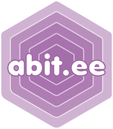A groundbreaking study by American researchers revealed that people virtually cannot distinguish ChatGPT's advice from experienced psychotherapists' recommendations. Moreover, experiment participants rated AI responses higher than human ones.

G. Ostrov
A revolutionary study conducted by research teams from leading American universities has demonstrated the remarkable capabilities of artificial intelligence in the field of psychological assistance. The experiment results compel us to reconsider traditional perspectives on technology's role in psychotherapy.
Research Methodology
Researchers created 18 different family conflict scenarios, each requiring professional psychological intervention. For each situation, two types of responses were prepared: from a team of qualified psychotherapists with years of experience and from the ChatGPT-4 neural network.
The experiment involved 830 volunteers. Each participant was randomly provided with one of the responses and asked to determine its origin: whether it was created by artificial intelligence or written by a human specialist.
Surprising Results
The obtained data proved sensational. Participants could correctly identify ChatGPT responses in only 51% of cases, which practically corresponds to random guessing. Professional psychotherapists' responses were correctly identified in 56% of cases — a marginally better result.
Even more surprising was the fact that artificial intelligence advice received higher ratings from participants compared to recommendations from living specialists. This occurred despite people's initial bias against technological solutions in the psychology field.
AI Response Quality
Analysis showed that ChatGPT demonstrated a higher level of empathy in its responses, while the practical usefulness of its advice was not inferior to professional psychotherapists' recommendations. The neural network showed the ability for deep understanding of emotional nuances and providing relevant solutions to complex interpersonal problems.
Application Prospects
Experts in the psychology field note the enormous potential of using AI in therapeutic practice. Technology can significantly increase the accessibility of psychological help, especially for people who avoid seeking specialists for various reasons: due to embarrassment, financial constraints, or geographical distance from professional centers.
Global Need for Psychological Help
According to the World Health Organization, approximately one billion people worldwide need psychological support. However, only an insignificant portion of those in need receive real help. In developing countries, the situation is particularly critical — access to qualified psychological help is available to at best every fourth person among those in need.
Integration of AI technologies into the psychological assistance system could become a breakthrough solution to this global problem, providing quality support to millions of people worldwide.
More detailed information about research in AI and psychology can be found on the World Health Organization website.
If you encounter any problems, contact us, we will help quickly and efficiently!




